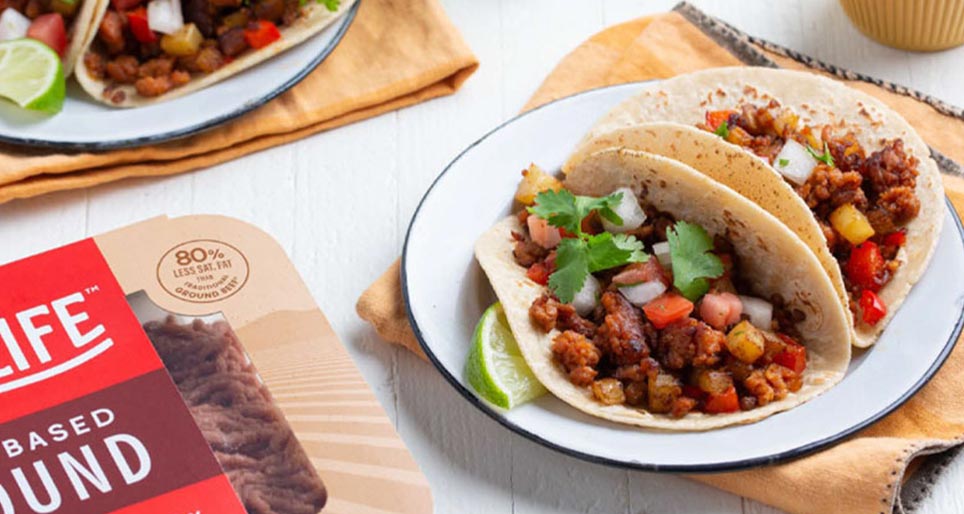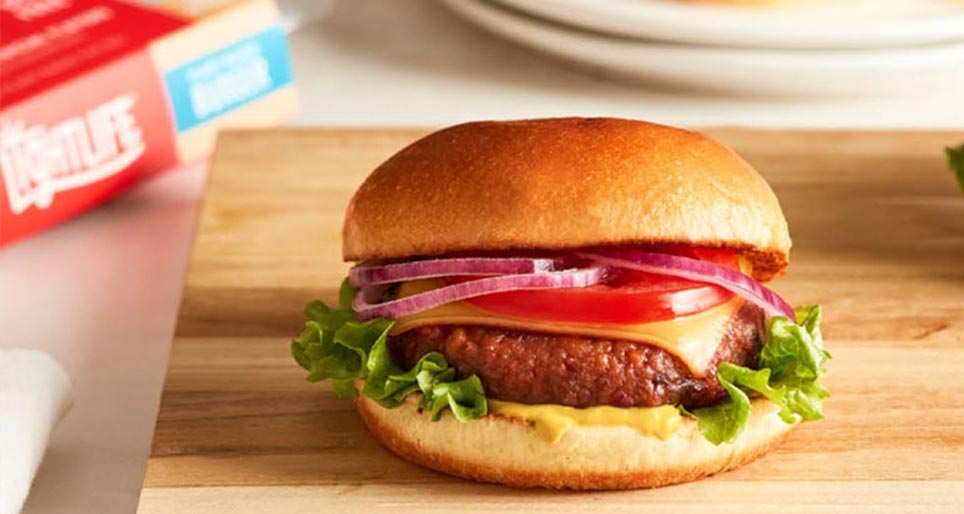What You Need to Know About Pea Protein
This vegetarian source of protein is in everything from energy bars and veggie burgers to smoothie add-ins and dietary supplements. Should you add it to your diet? Read on.
BY MEGHAN RABBIT
Protein isn’t just important when it comes to building muscle and maintaining a healthy weight. It’s crucial for your body’s day-to-day functions, helping to stabilize your hormones, keep your blood sugar in check, and make you feel alert and energized.
Yet while the old approach to adding more protein to your diet almost always involved eating more meat, new evidence is finding that consuming excess animal protein both increases your risk of disease and negatively impacts the environment. The better solution: Adding more plant-based protein to your diet. And right now, pea protein is one of the most popular.
WHAT IS PEA PROTEIN?
Pea protein is extracted from both green and yellow split peas, legumes that are rich in protein as well as iron. “The peas are pulverized and then separated from the other elements within the pea, leaving a small amount of fat and fiber, as well as many beneficial nutrients bundled with the protein itself,” says Suzannah Gerber, a research and education specialist for the Beatty Liver and Obesity Research Center and author of the book Plant-Based Gourmet (Apollo, 2020).
You can find pea protein as a powder (great for adding to smoothies and baked goods for a protein boost!), and as an ingredient in packaged foods like plant-based burgers and ground “meats,” non-dairy milks, and even some non-dairy ice creams and mayonnaise.
Wondering why pea protein is increasingly showing up in foods like these? Susan Moores, R.D., a dietitian and nutrition consultant in St. Paul, Minn., says one reason is because the original source of plant-based protein—soy—has recently gotten a bad rap.
“I’m seeing a lot of people move away from soy as a source of protein because they’re hearing a lot more negatives than positives about the ingredient, particularly that it’s a potential allergen, may cause trouble for women with estrogen issues, and because it’s tough to find non-GMO soy,” says Moores. “Pea protein is a vegan, gluten-free and dairy-free source of protein that that is well digested by most people.”
THE BENEFITS OF PEA PROTEIN
In addition to being a well-tolerated vegan source of protein, this nutritional powerhouse has a host of other big upsides:
It’s rich in iron. At around 5 mg per 20 gram (or 2-scoop) serving, pea protein gives you nearly a third of your daily requirement.
It’s great for those with allergies. For people who are sensitive or allergic to soy, wheat, eggs or dairy, pea protein is a great option. The exception, of course, is for those who are allergic to legumes. “You may have a reaction if you’re allergic to other legumes, like peanuts,” says Ashley Koff, R.D., a dietitian and CEO of the Better Nutrition program.
It helps build muscle. One study found that those who consumed 50 grams of pea protein a day combined with a weight-lifting program gained the same amount of muscle as those taking whey protein.
It’s good for your gut. Thanks to the fiber in pea protein, it contains valuable prebiotics that help healthy gut bacteria thrive, says Gerber.
It promotes fullness. Research shows that pea protein is just as good as other sources when it comes to helping you keep your calorie intake in check. One study found that those who consumed 20 grams of pea protein powder 30 minutes before eating pizza reduced the average number of calories they consumed by about 12 percent.
What to Keep in Mind Before You Try Pea Protein
While dietitians agree that pea protein is a great addition for most people, it’s important to include other sources of protein in your diet, too. “I recommend pea protein in combination with other proteins, as I don’t think we should rely on just one ingredient or food source for our protein needs,” says Koff.






Share this Post